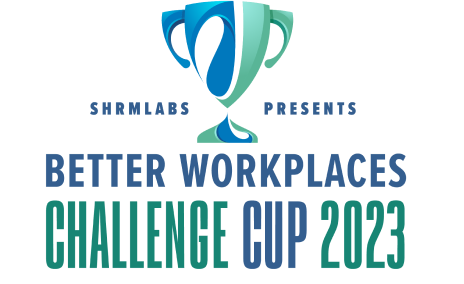A few weeks ago, the largest behavioral health tech conference took place virtually. This meant, that pioneers in the field of digital mental health came together to share their latest insights and exchange opinions … and Inuka was there too! Keep on reading for a summary of what was discussed amongst the pioneers and uprising stars in behavioral health care technology!
Red flags everywhere
“Nearly 50% of U.S. adults will be diagnosed with a mental health condition in their lifetime” – WHO Mental Health Survey Initiative
The first thing that everybody agreed on was the alarming situation we are currently dealing with. People were already struggling with mental health and feeling isolated. But the global pandemic aggravated this situation by 400% and at the same time also put the spotlight on it. Owing to this increase in awareness society now starts to realize that people openly suffering from behavioral health problems were just the tip of the iceberg. The problem of people suffering in silence is on a horribly huge scale: 56% of all U.S. adults experience a mental health symptom at some point in their life, but more than half never receive care. Moreover, depression is the leading cause of disability in the U.S., costing the state tens of thousands of dollars per person every year.
Rethinking mental health
Adding to the nowadays alarming situation, a lot of stigma and misunderstanding surrounds mental health. Those problems exist on a vast continuum from people experiencing minor symptoms to seriously impaired individuals. There is a tendency to shame people with the latter, claiming mental health is binary. However, it is imperative to eliminate this mindset, to acknowledge that many of us are suffering from it. In terms of treatment, healthcare systems all around the world are rather narrow-mindedly focused on doctors. Unless we increase the number of doctors tenfold, it is impossible to give everybody the appropriate care they need. This scenario gives digital behavioral health care an unprecedented ability for change.

The digital behavioral health care industry
According to a McKinsey study, the telehealth industry rose from a 3$ billion to a 250$ industry in the past years. Additionally, compared to 11% a year ago, 76% of people would be interested in it at present. The reason for that being that it entails a lot of advantages, that are especially effective nowadays. It reduces transportation costs, waiting times, and offers the opportunity to seek help and work whenever, wherever. In addition to this, it allows mental health support so split off into different areas. During the conference, I encountered a wide range of different apps. Apps that are tailored towards college students experiencing loneliness. Apps that helped hospitalized patients find mental health support in their vicinity that would be covered by their insurance. And apps that focused on supporting elderly people in rural areas. This specificity allows for both more personalized and more efficient support. So, in a nutshell, it enables reaching the right people with the right support at the right time in a completely unbureaucratic way – doesn’t that sound pretty great?
The potential of digital behavioral health care
But there’s more to the potential of digital behavioral health care. In fact, 80% of behavioral health issues are not in a purely clinical area, but more linked to lifestyle issues. These include unhealthy habits like drinking, bad diets, or problems with education, housing, or social support. Having said that, there is a potential for digital behavioral health care in two ways. On the one hand, it can help to make the existing health care system more efficient by providing more support (online). Thereby it can close the gap of the clinical 20%. Yet, more importantly, it has the power to address the remaining 80% of lifestyle issues. That is, specialized apps can be more of a help to support people in lifestyle changes, than overworked doctors. And that would not only entail stripping away the shame of reaching out; also providing empathy and advice, addressing loneliness, despair, and offering small, yet specific solutions to everyday problems. This allows for a much more holistic, prevention-focused approach. An approach, that has the potential to prevent bigger problems from arising.

Barriers in digital behavioral health care
While digital behavioral health care seems to be very promising, there are some barriers. For once, this is a new, uprising field. This means that while its potential and effectiveness are undisputed, this has to be demonstrated on a larger scale still. Only then it can be legitimized and validated. Secondly, there is a lack of collaboration. Currently, many mental health apps and initiatives operate parallel to our healthcare systems. What is necessary, is a combination of both systems in order to ensure maximum efficiency. However, unless the effectiveness of digital behavioral health care is validated scientifically on a large scale, this seems a difficult thing to do. Lastly, in order to truly treat mental health like any other illness, it is pivotal to share data. When you go to a doctor, they can access information about your past surgeries and overall medical history. Yet, it is not the case for mental health. This might be good in order to ensure complete confidentiality of the patient. However, these safeguards are also destructive. They prevent doctors from forming a complete, holistic picture, thereby withholding information that might be crucial for successful treatment.
Inuka – a star player in the era of digital behavioral health care?
Having discussed the main insights from the conference, where is Inuka’s place in all of this? In all unbiased modesty, I’d say it’s not too bad. To start off, only 3% of all mental health apps are evidence-based. In that regard, Inuka stand out. Not only because its effectiveness has been proven in a pilot study, but also because relies on a scientifically proven method. On top of that, Inuka’s prevention-focused approach to mental health is applicable in a wide range of situations: the problem-solving technique that our coaches apply, works effectively for depression and anxiety but also pretty much any lifestyle issue or struggle that people might be facing. In addition to that, it also works across cultures. Having said that, we have clients from both Europe and Africa. So, with some odds in our favor, fingers crossed that Inuka will be able to continue to make mental health care more accessible to everybody!





